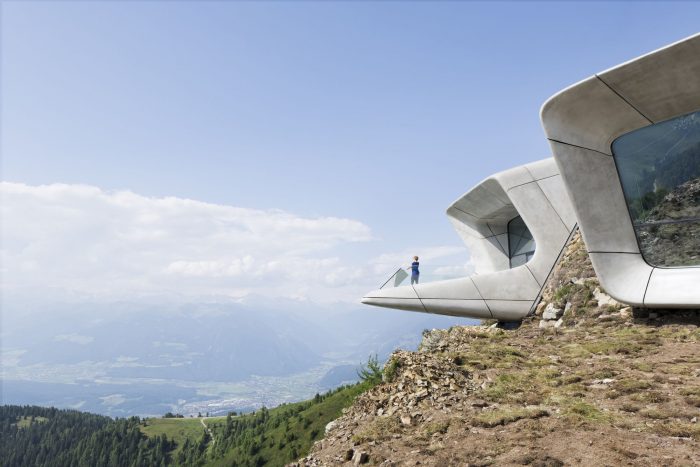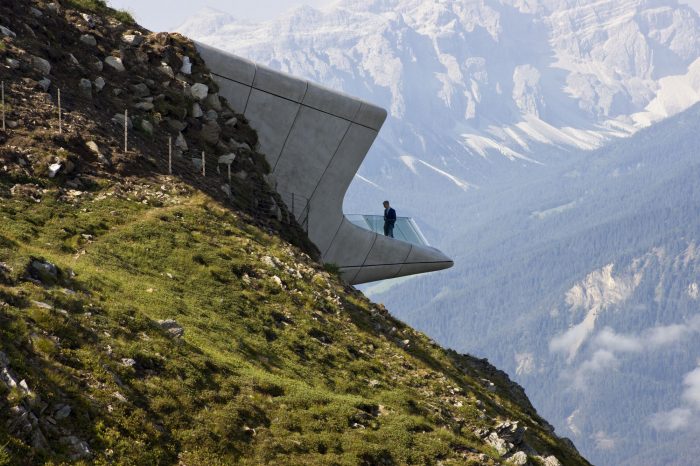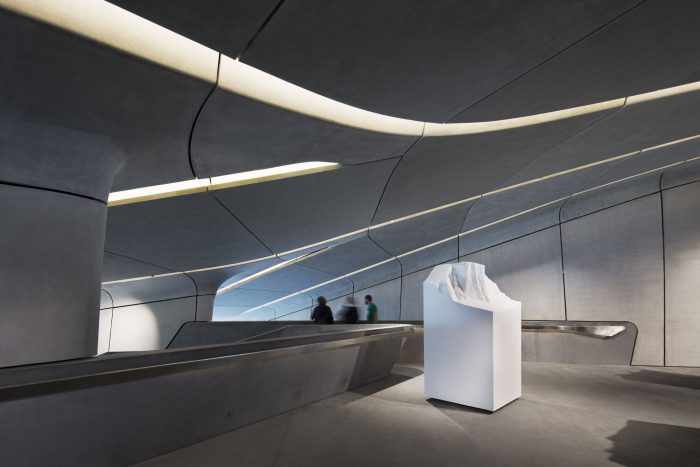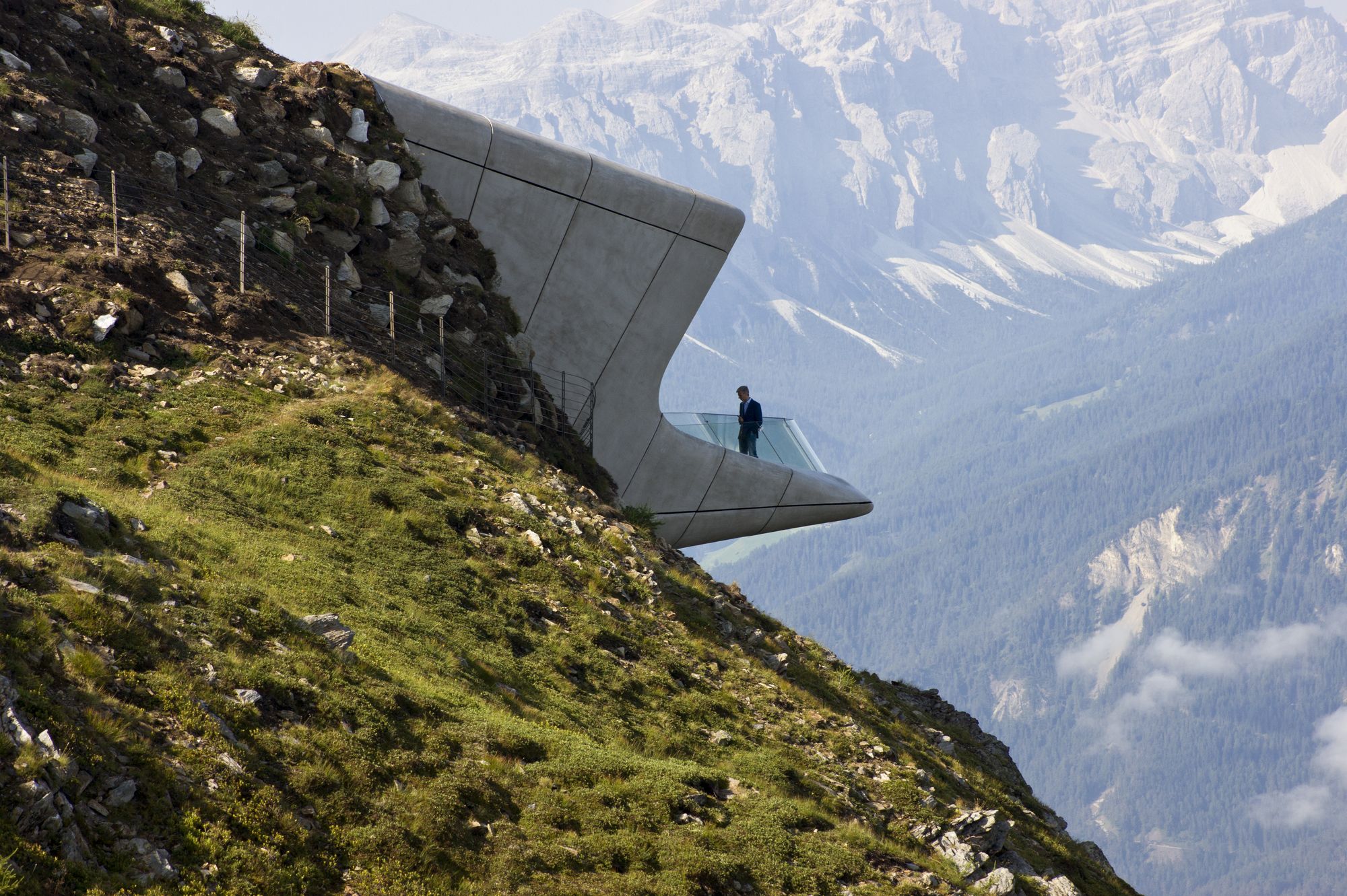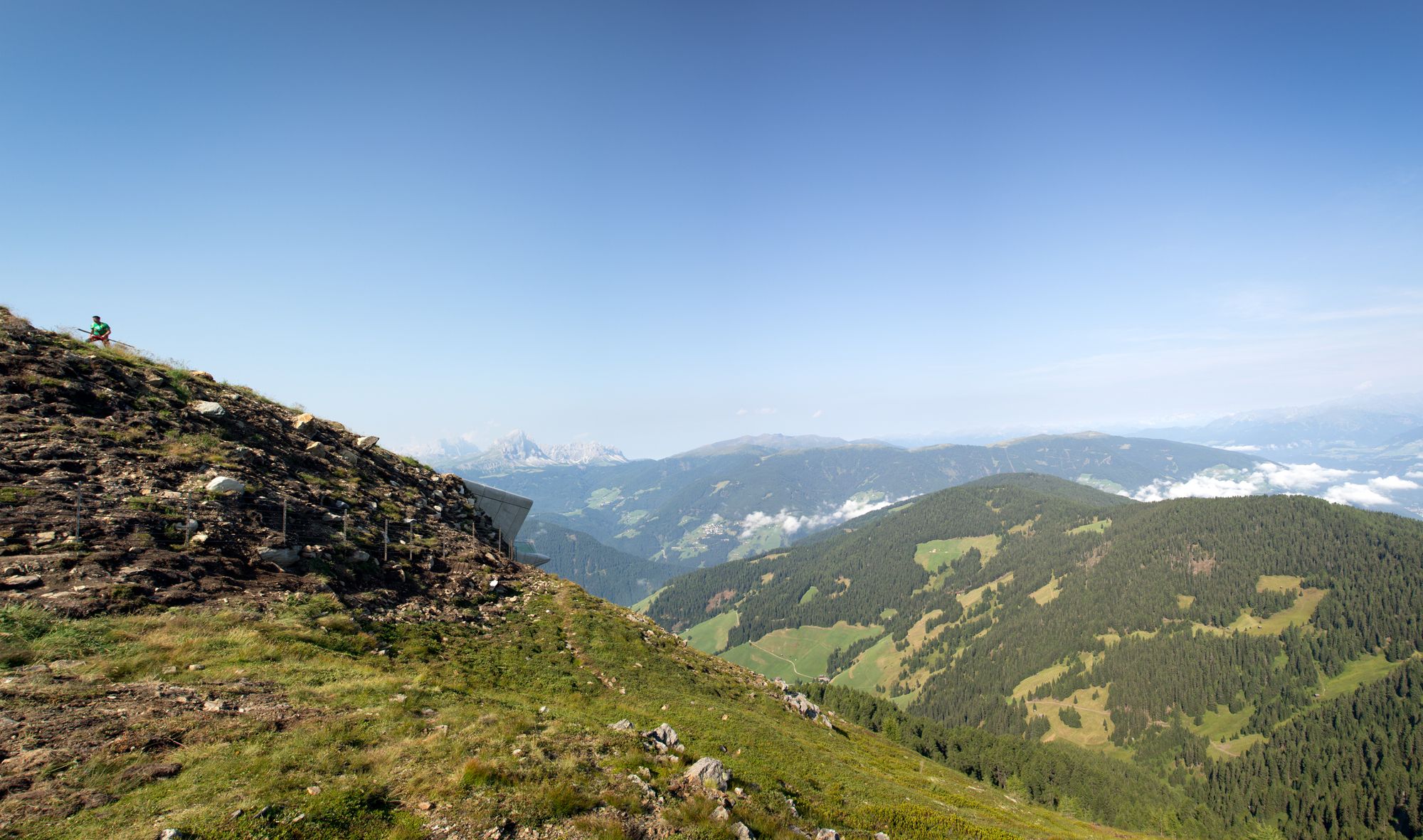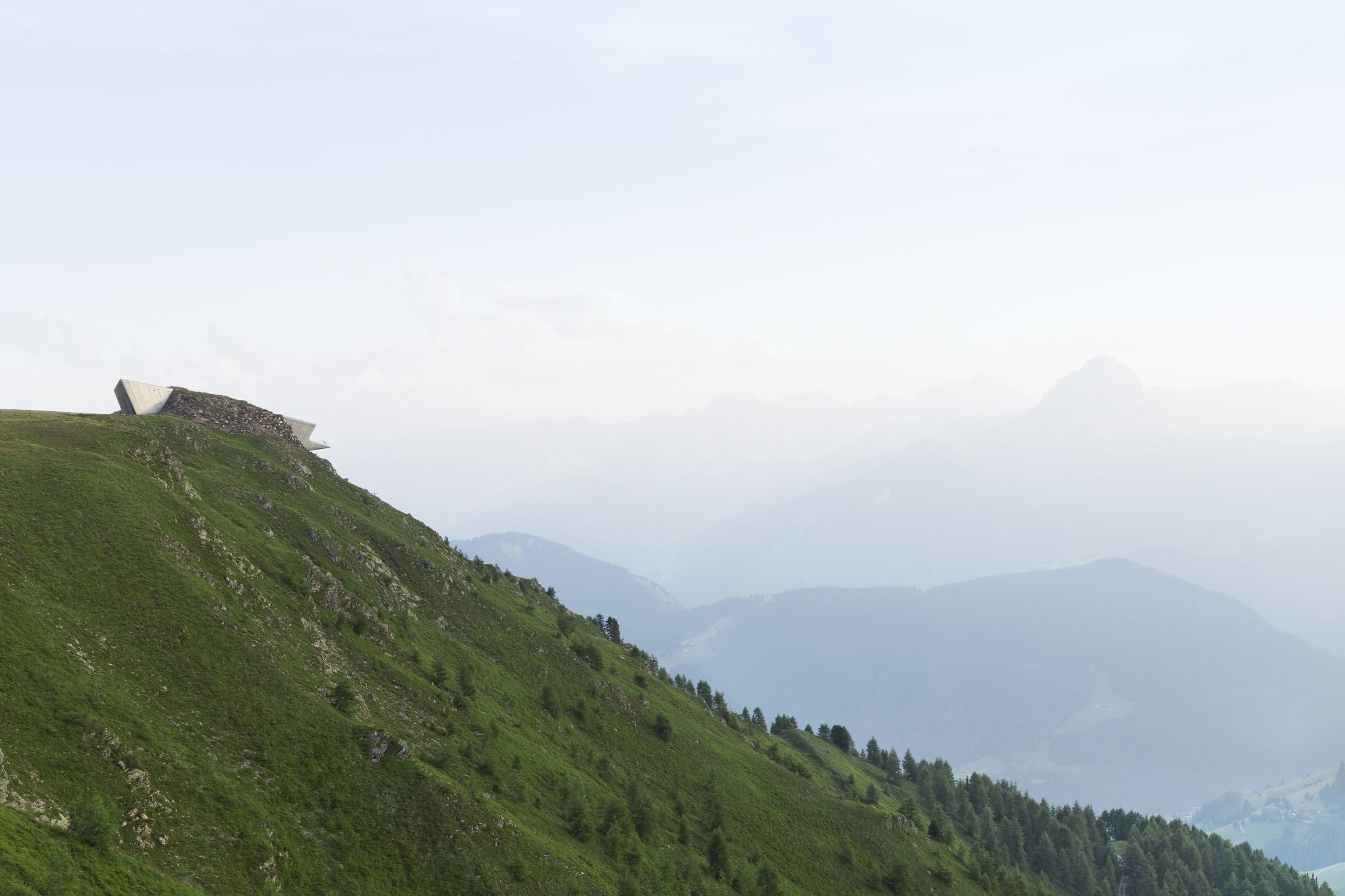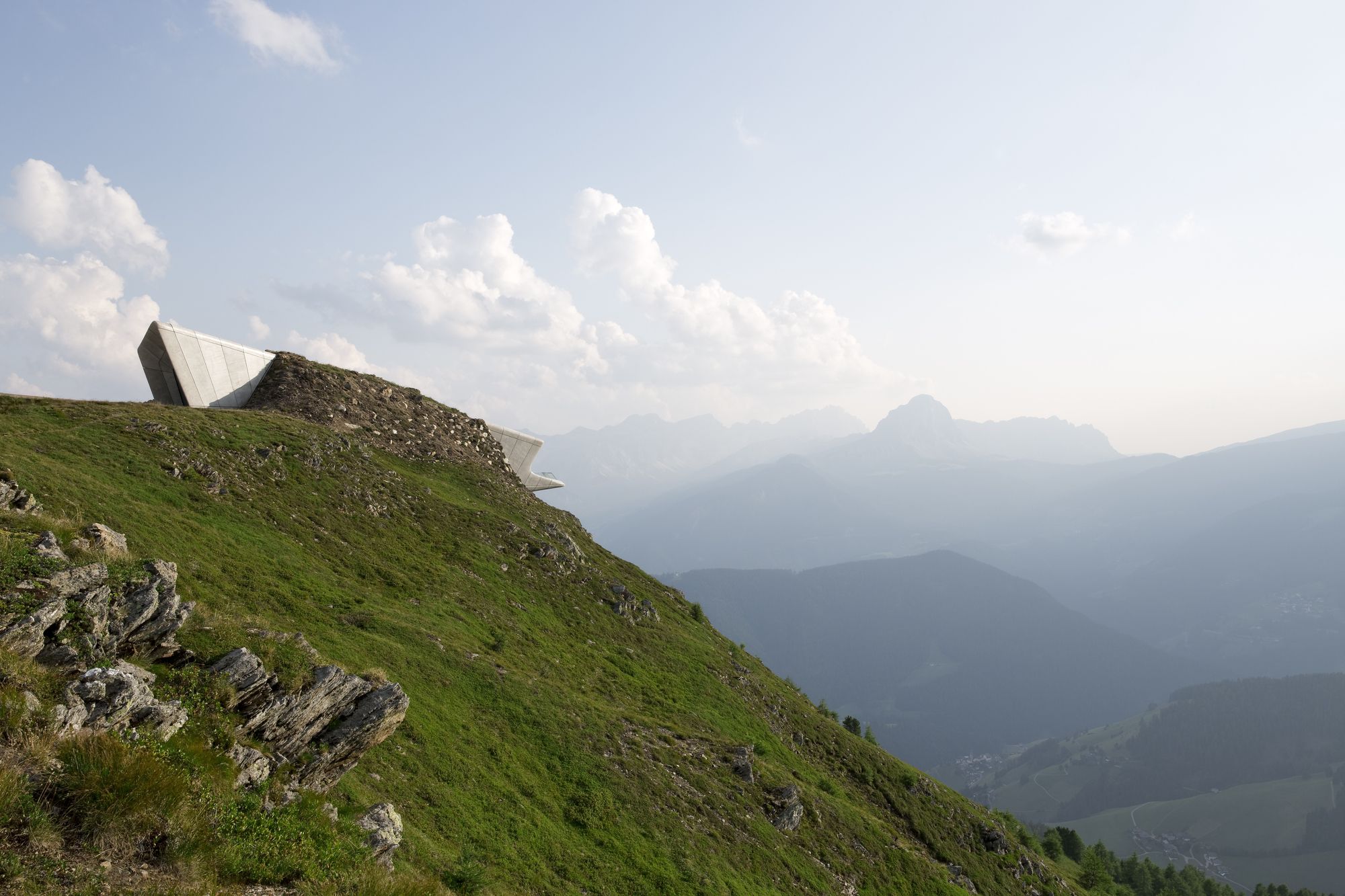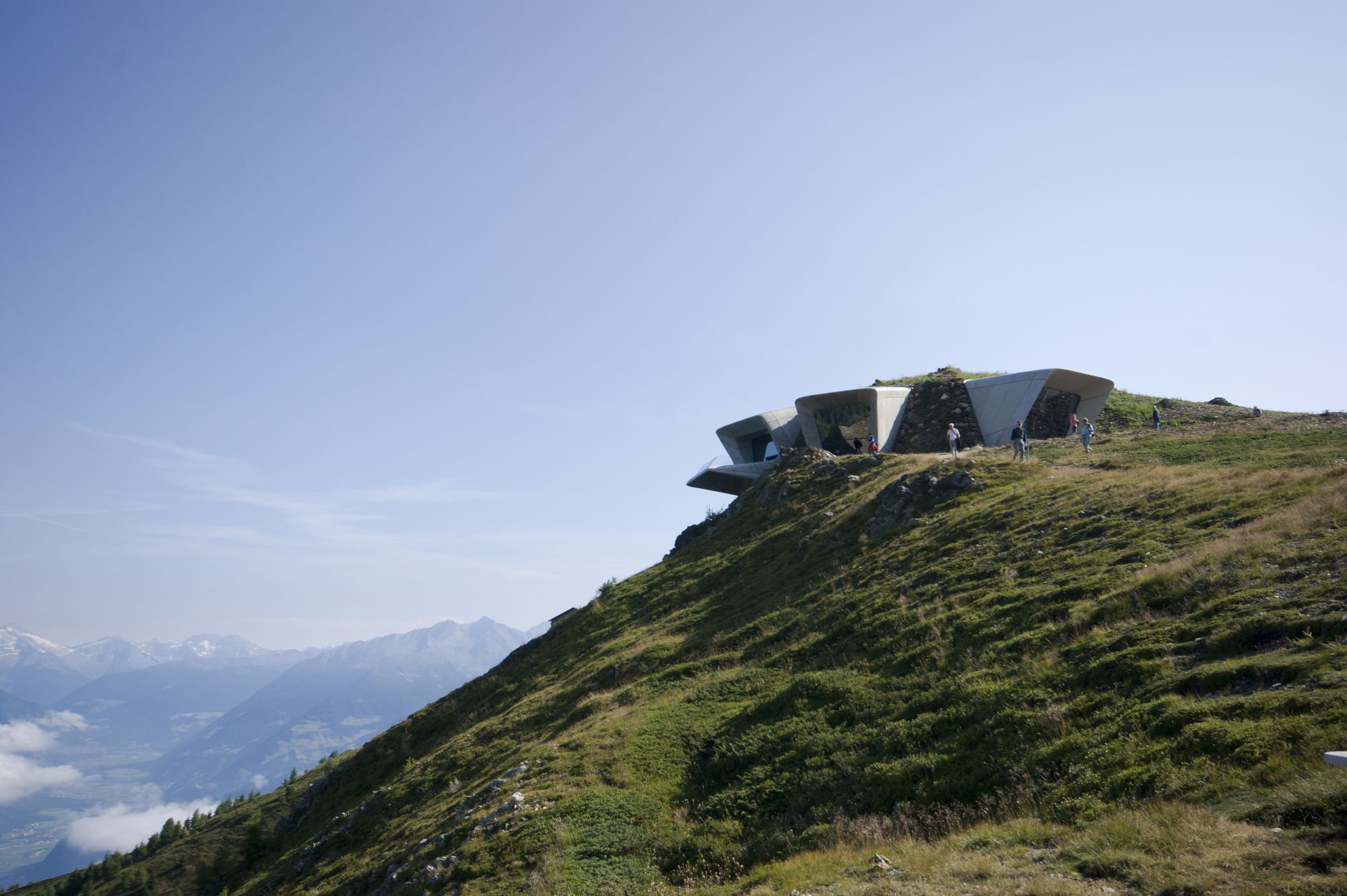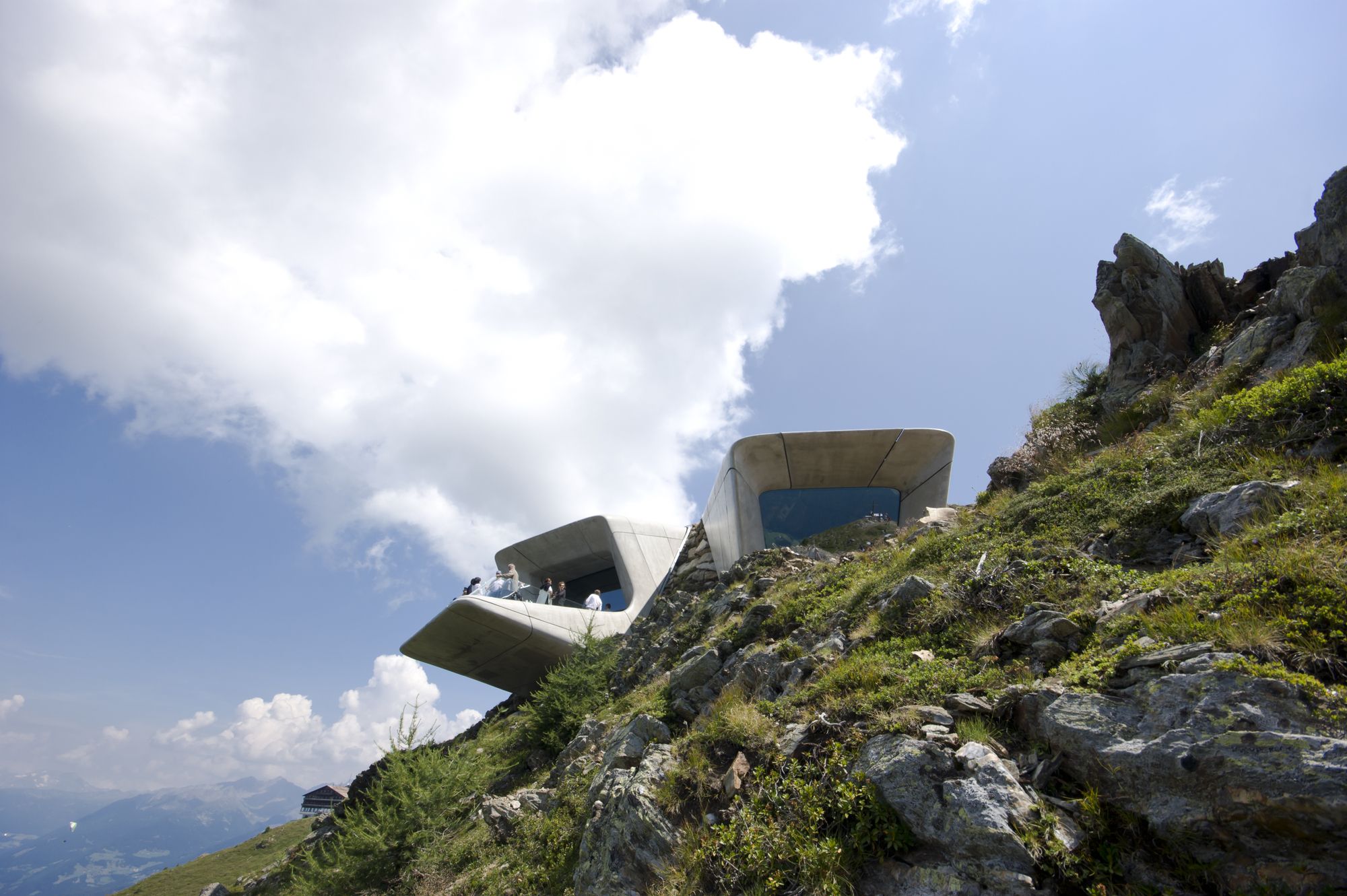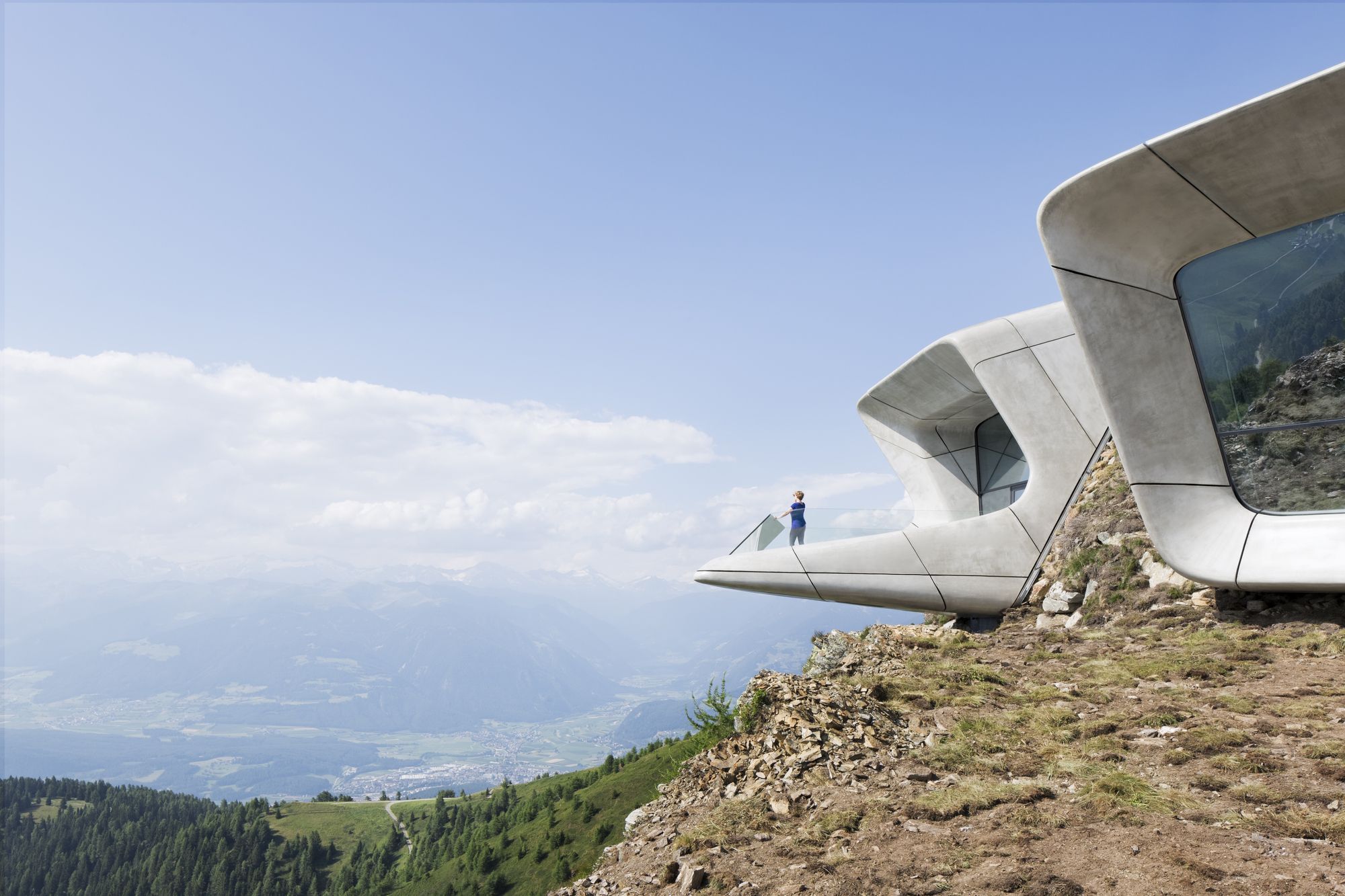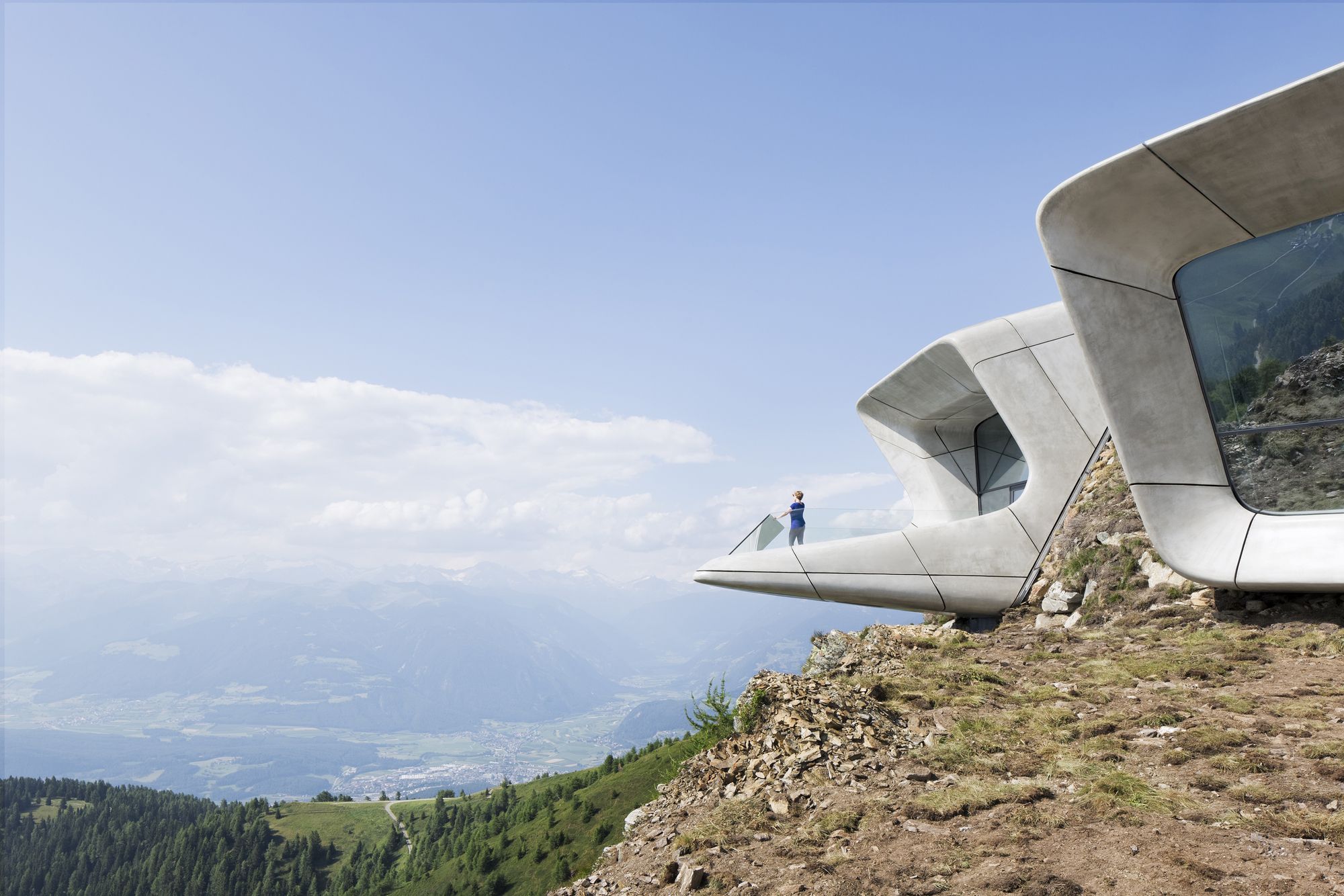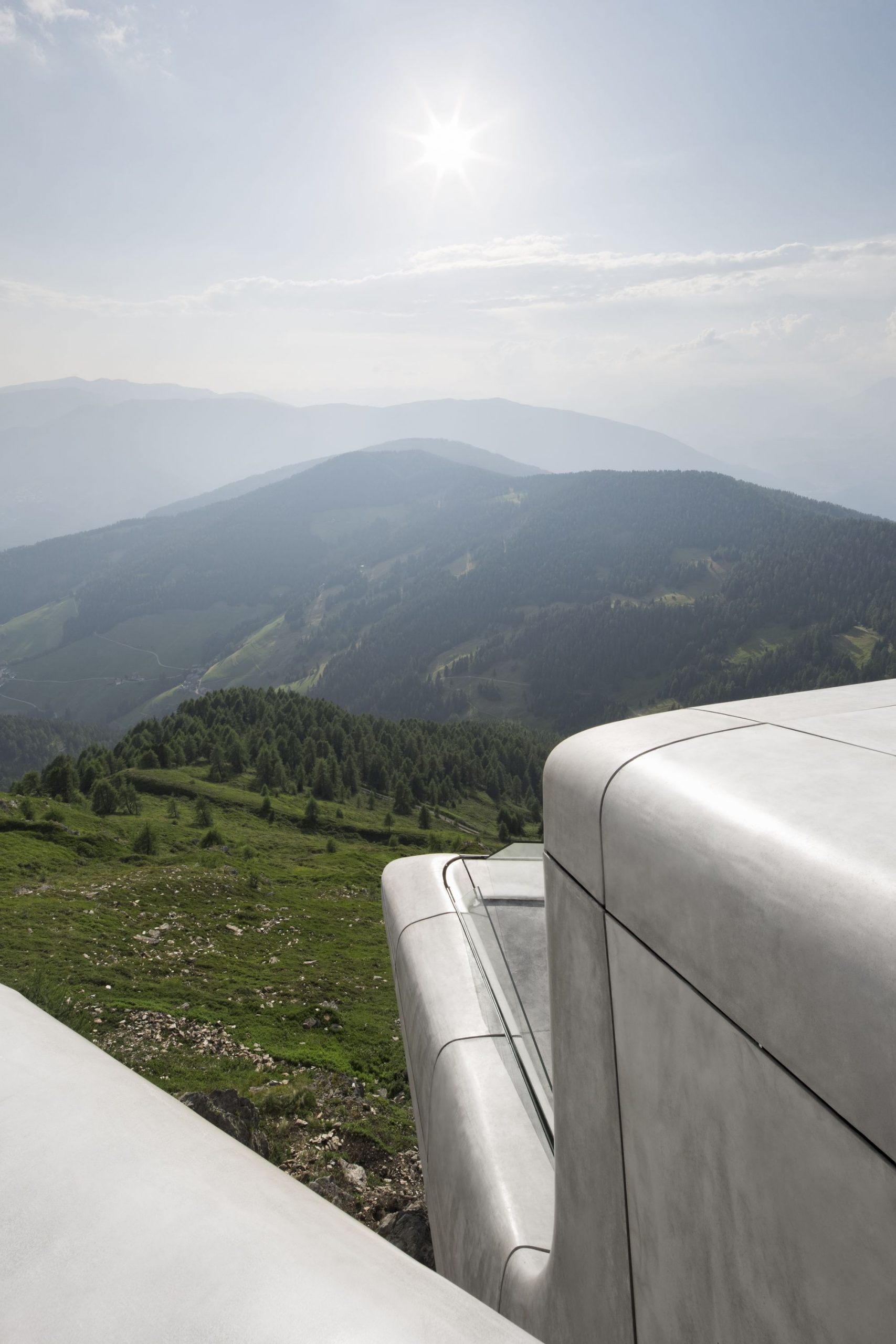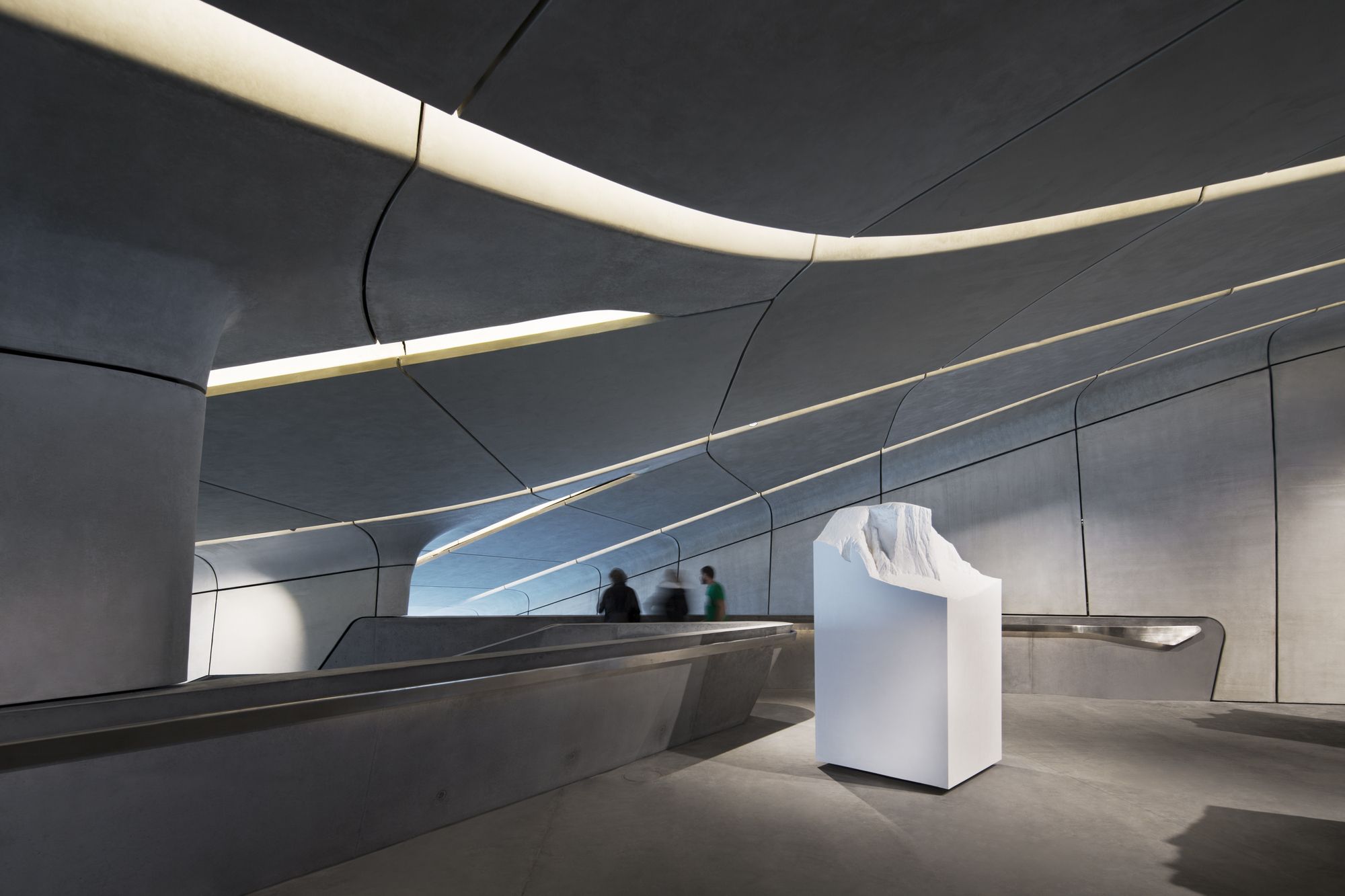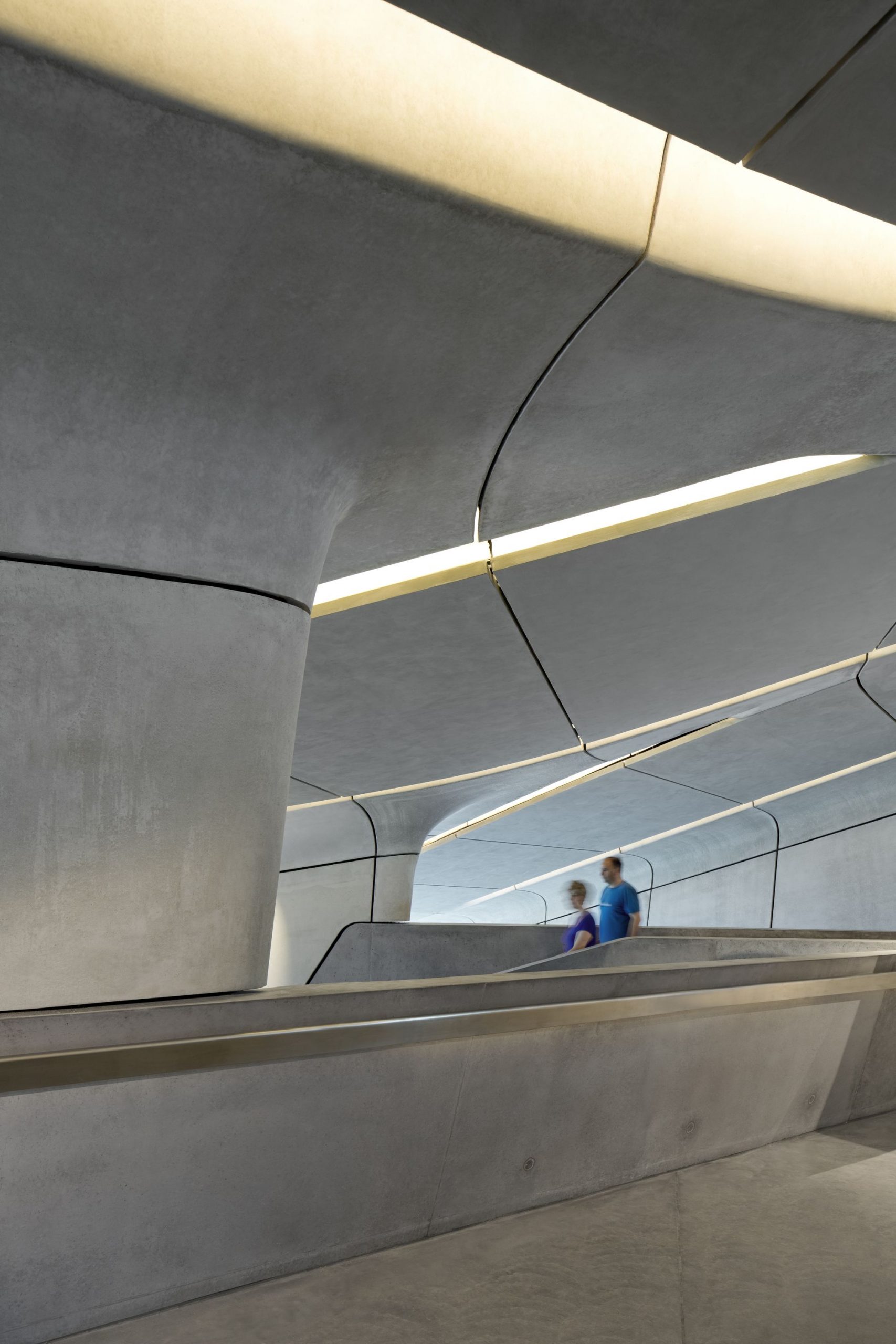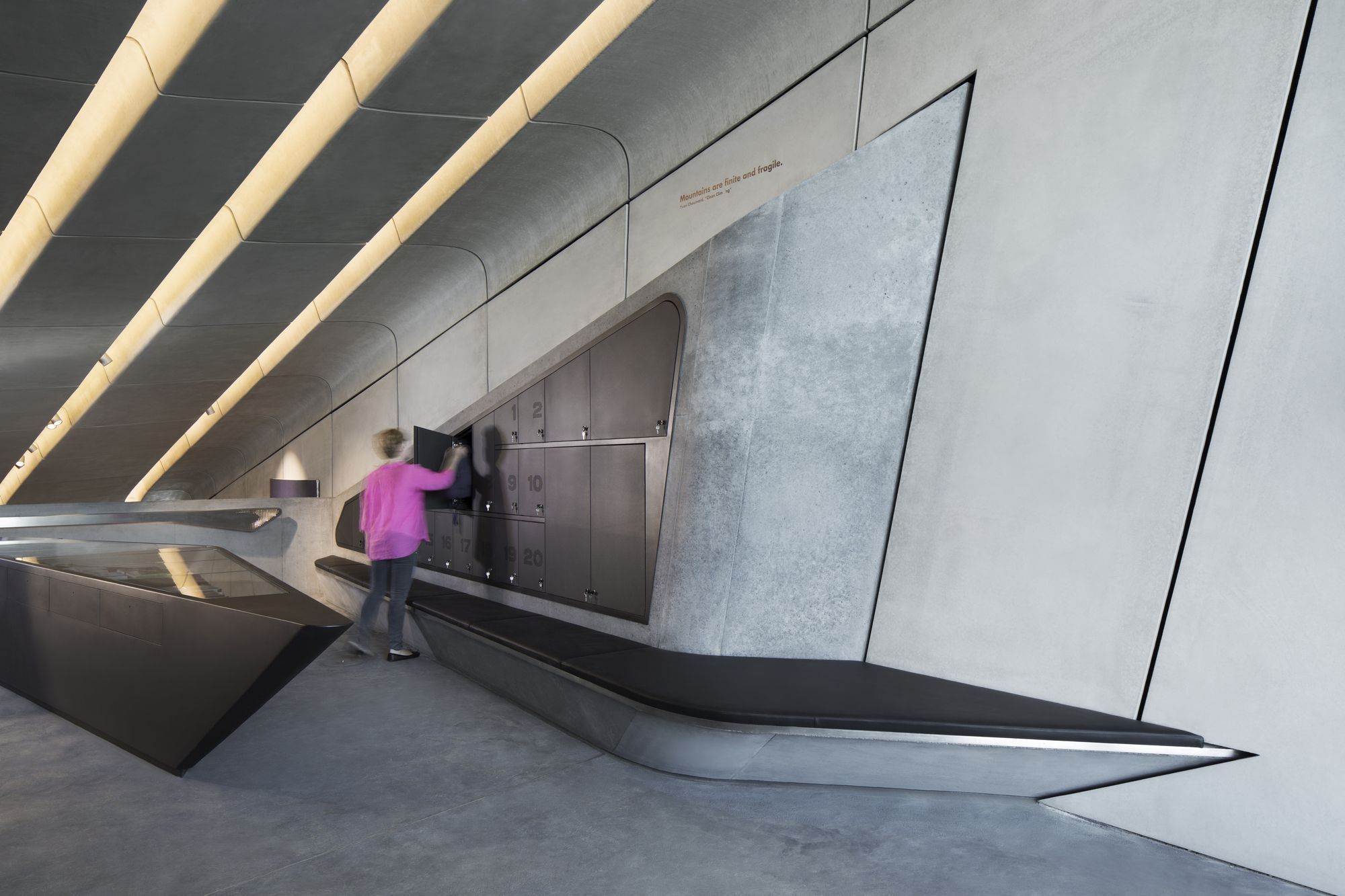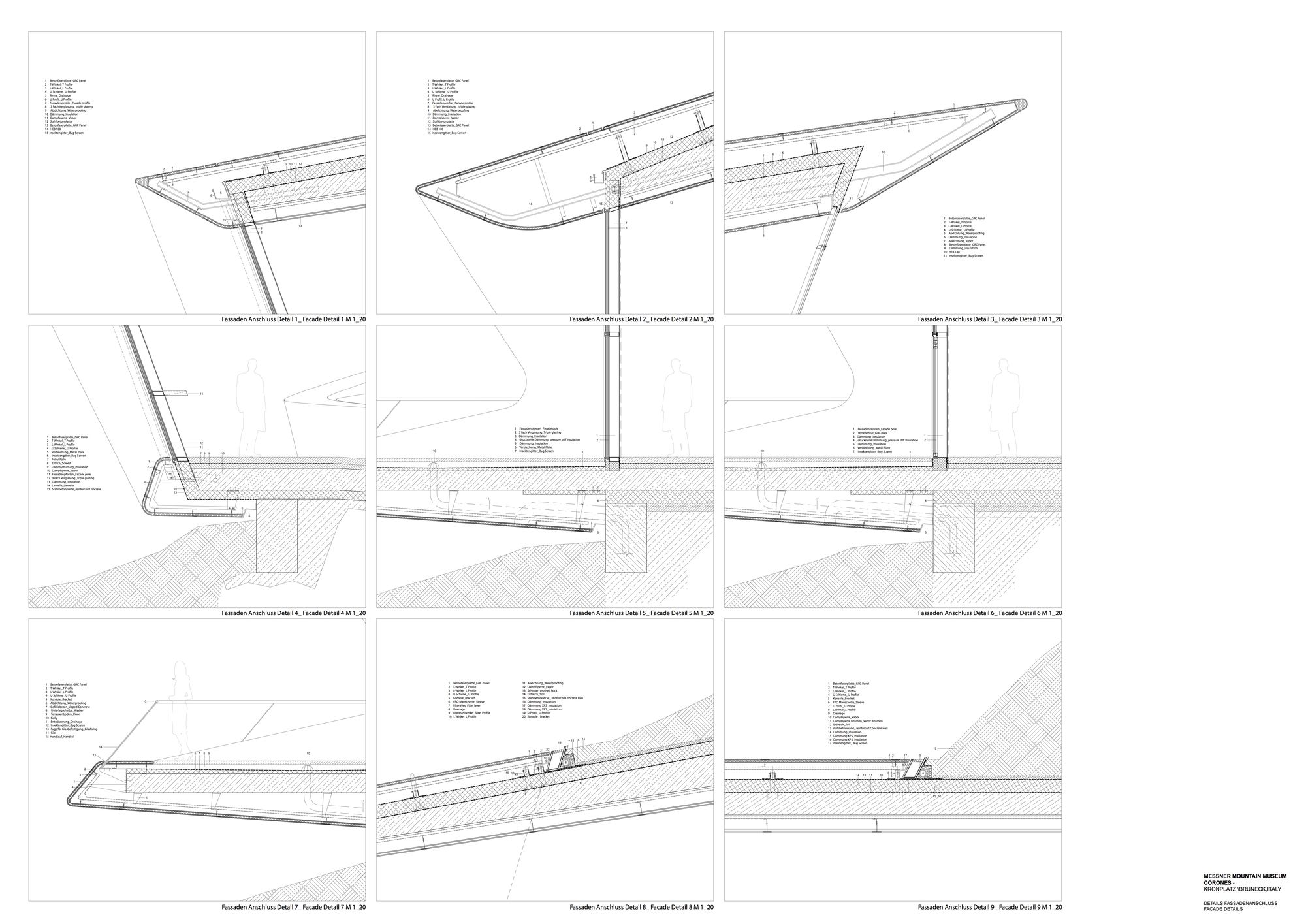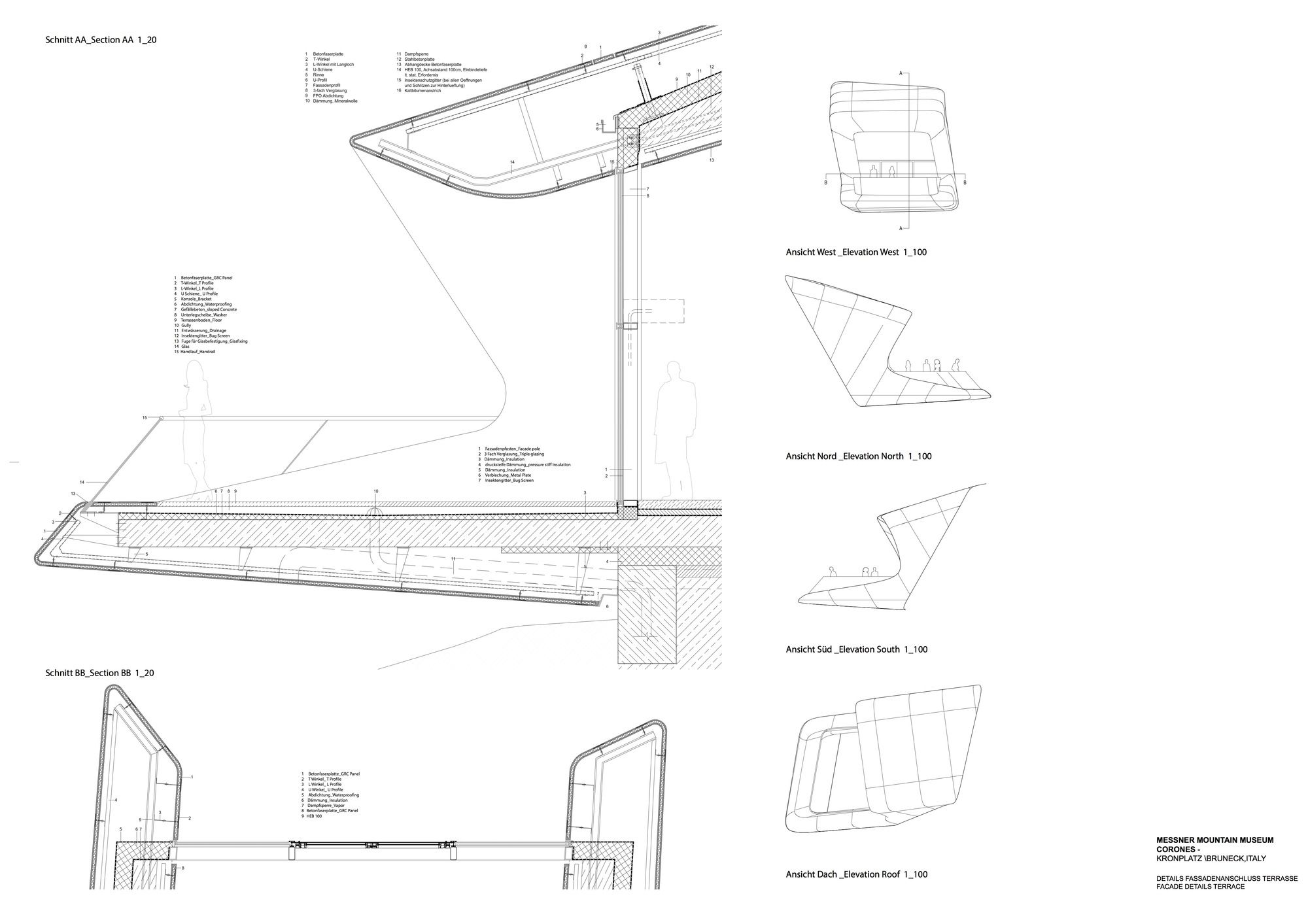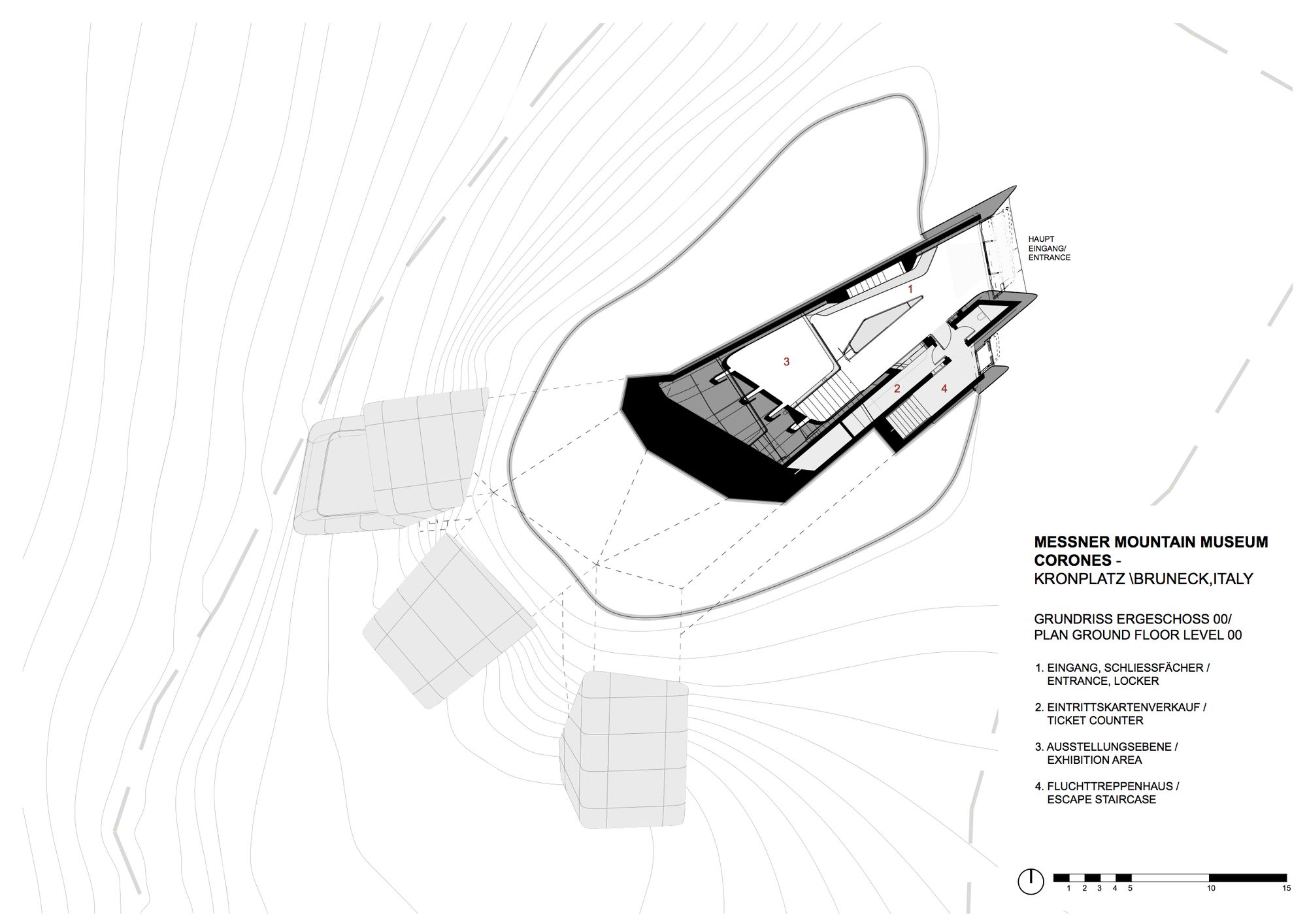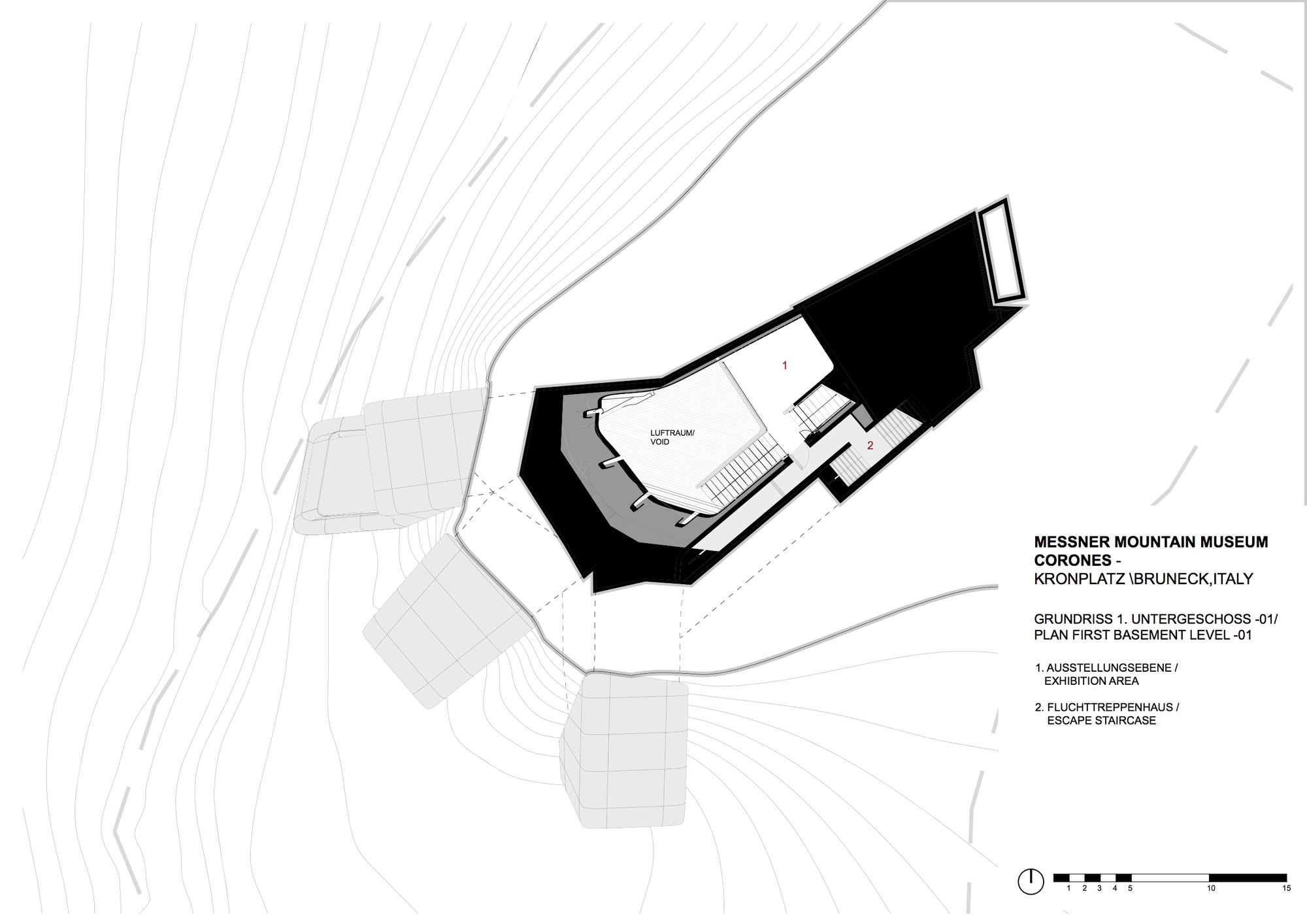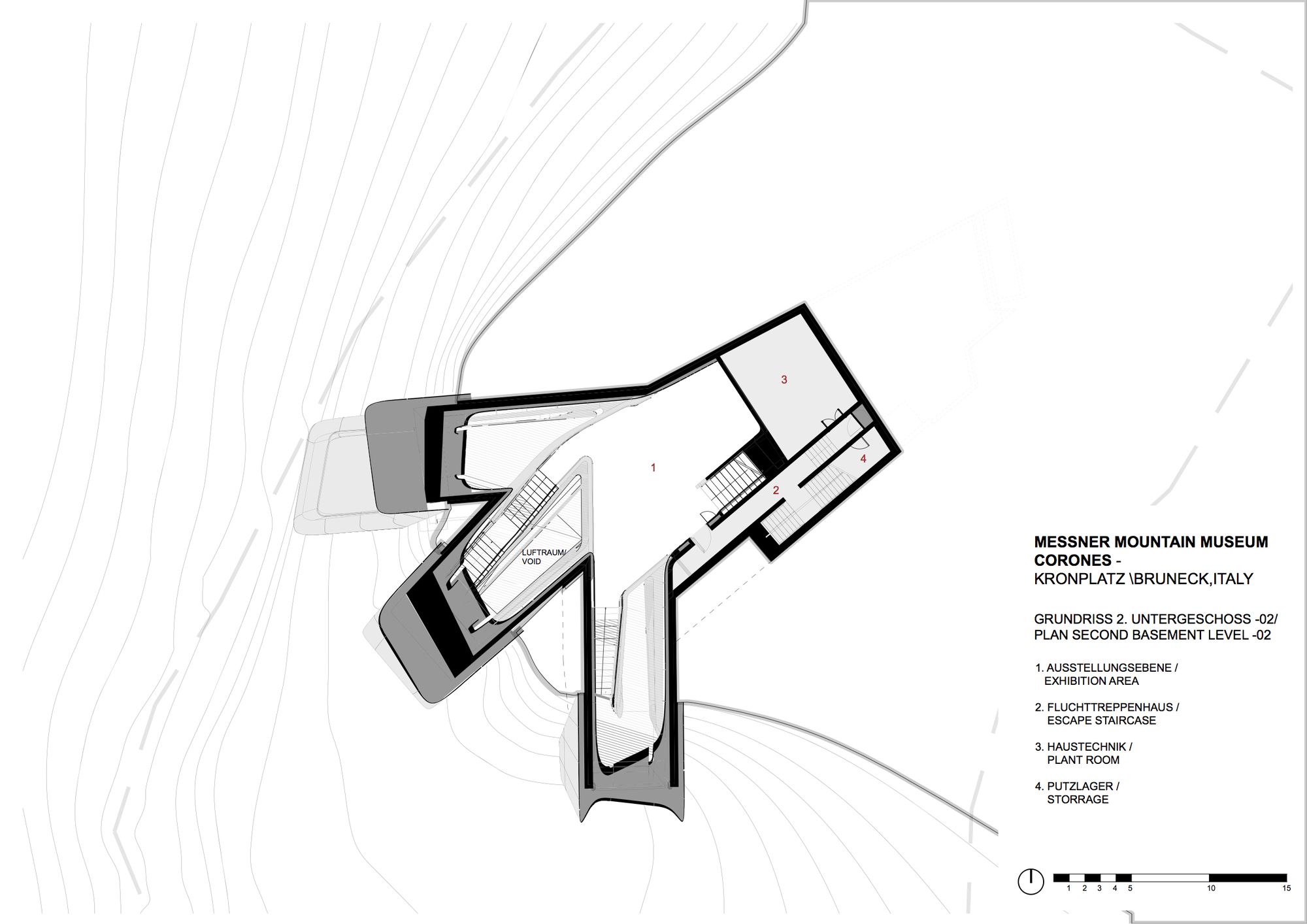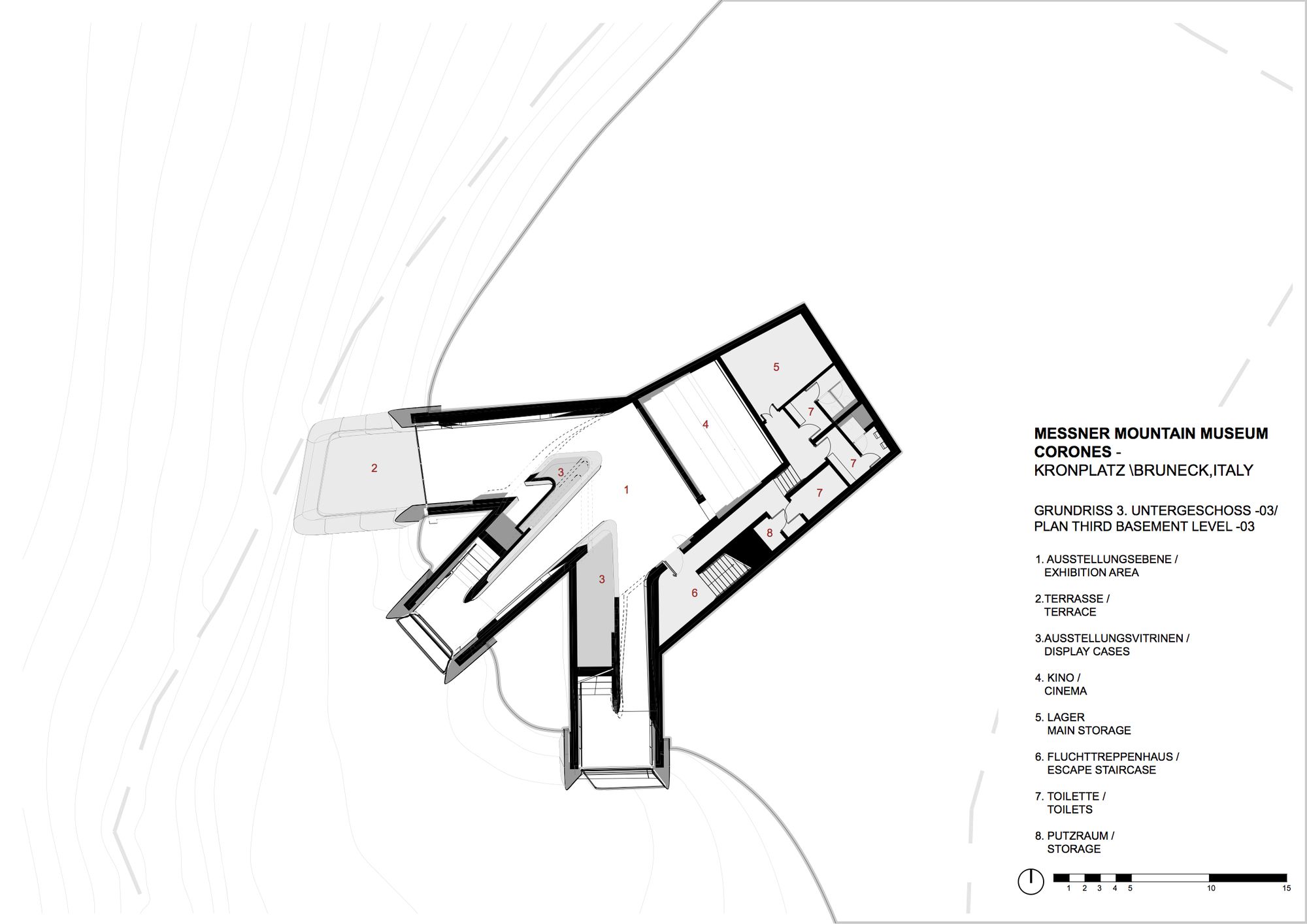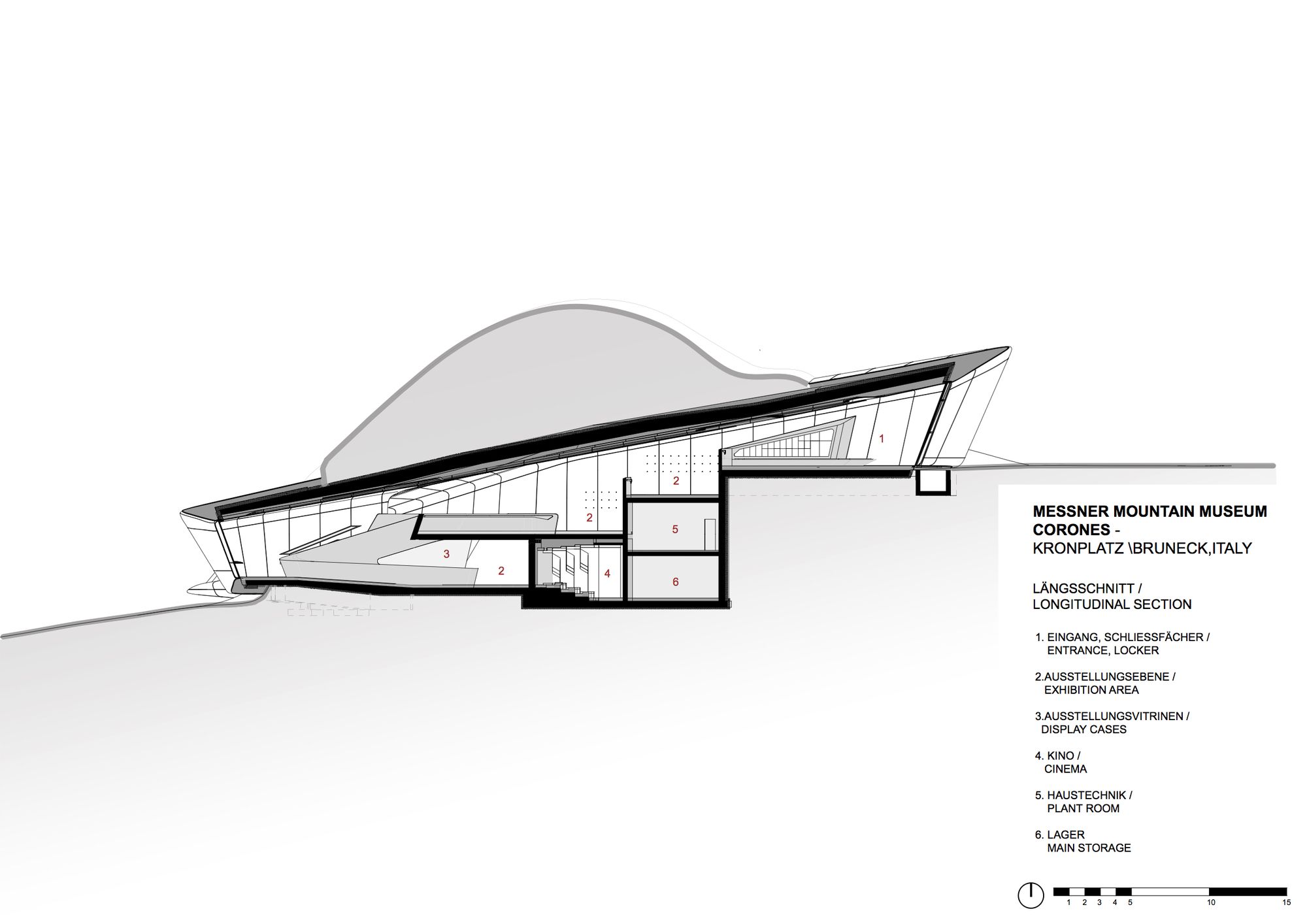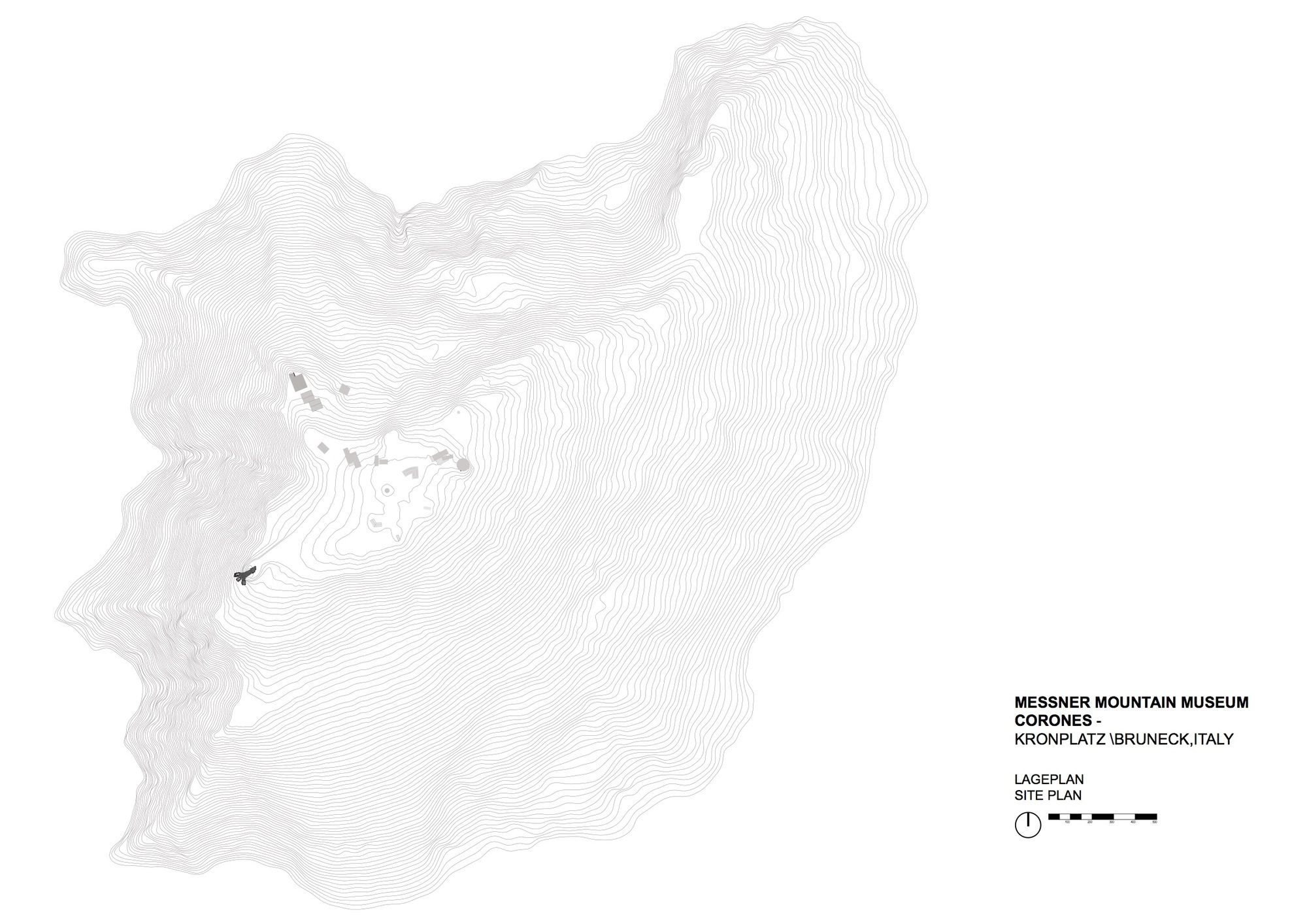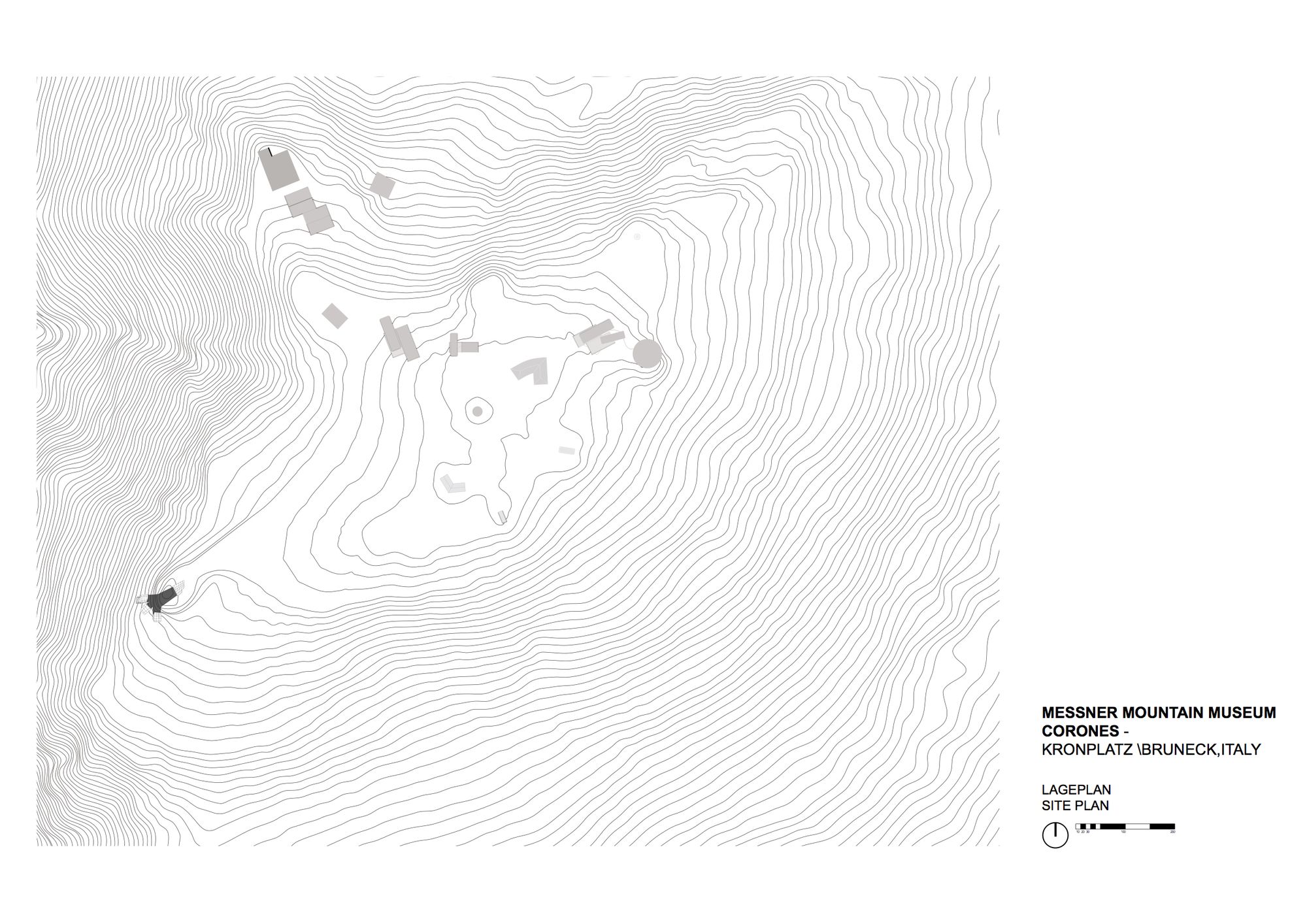Zaha Hadid Architects revealed their design for Messner Mountain Museum’s sixth and final building. It concludes a series of buildings in the Dolomites of Northern Italy. The design appears to strive for integration, which is manifested in different layers.
First, it is shown in the collaboration of Zaha Hadid Architects with renowned mountaineer, Reinhold Messner and renowned ski resort, Kronplatz, bridging architecture to sport and recreation. Formally, the most apparent integration is that with the landscape: the building is inlayed into the mountain peak, a marriage of built and natural. The building will act as a remote destination for mountaineers. Thus, the integration goes further, to incorporate the meandering route of the mountaineer as he reaches the top. This is manifested in circulation via a labyrinthine path over three levels.

The inlaying of the building into the ground will help maintain a comfortable and almost constant internal temperature, borrowing from the ground’s thermal stability. Usually with embedding a building into the ground, day lighting is an issue. It seems that the apertures are oriented in a way to provide sufficient daylight to the museum. My concern is the day lighting of other secondary programmatical elements.

The integration of contextual influences over different layers is an opportunity to go beyond the programmatical requirements. The site is an extraordinary destination. Once developed, the site can potentially provide a visitor’s center for tourists and a cultural center for locals of the region. It has the potential to educate. Zaha Hadid Architects touch on that by providing exhibition, presentation, and auditorium space, but given the site and client, I wonder if it can potentially go further to celebrate culture and sport beyond these direct ways. The celebratory aspect of the building is best displayed in the 240-degree view of the Zillertal Alps, the Dolomites, and the grand Marmolada Glacier.

Zaha Hadid Architects have gained criticism from designers and mountaineers alike on whether the building sits lightly on the ground and reveres the landscape. It is said to be intrusive, and perhaps Hadid’s stylistic goals have an influence on that.
If the building seeks to make a statement while portraying an idea of embedment, then Hadid successfully accomplished those goals. Whether the goals are misplaced is subjective. If the project seeks integration into the landscape, then perhaps there is another goal that trumps it: providing a Hadid building. That said, one thing is clear: it is an embedment into a mountain peak, and if that was the core idea, then Zaha Hadid Architects have accomplished that.
© inexhibit.com
photography by © Luke Hayes
photography by © Werner Huthmacher
photography by © Werner Huthmacher
© inexhibit.com
© inexhibit.com
photography by © Werner Huthmacher
photography by © Werner Huthmacher
photography by © Werner Huthmacher
photography by © Werner Huthmacher
photography by © Werner Huthmacher
photography by © Werner Huthmacher
Façade Details
Terrace Detail
Plan Level -00
Plan Level -01
Plan Level -02
Plan Level -03
Section
Site Plan
Site Plan


